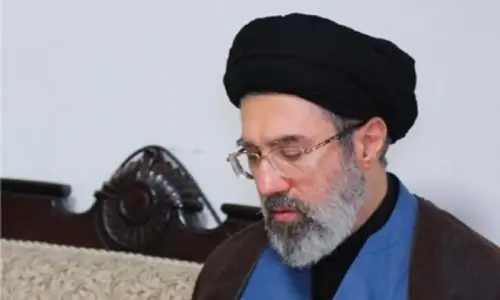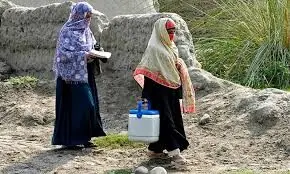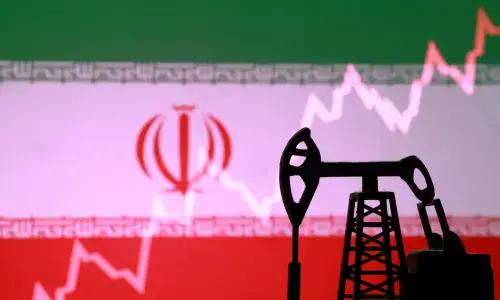 KATHMANDU, May 28: A constituent assembly in Nepal on Wednesday voted overwhelmingly in favour of abolishing the Himalayan nation’s 240-year-old Hindu monarchy and declaring a republic.
KATHMANDU, May 28: A constituent assembly in Nepal on Wednesday voted overwhelmingly in favour of abolishing the Himalayan nation’s 240-year-old Hindu monarchy and declaring a republic.
In a historic vote that caps a peace deal between Maoist rebels and mainstream parties, politicians ordered unpopular King Gyanendra to step down and for his palace to be turned into a museum.
“The sacrifice of thousands of Nepalese has been honoured today by us getting rid of the monarchy,” Communist Party of Nepal-Maoist spokesman Krishna Bahadur Mahara told AFP.
“The Nepalese people have been freed from centuries of feudal tradition, and the doors have now opened for a radical social and economic transformation,” he said.
A senior member of the 601-member Constituent Assembly, Kul Bahadur Gurung, said 560 members voted in favour and just four opposed. The remaining lawmakers were absent.
Nepal’s Maoists, who fought for 10 years to oust the Gyanendra’s Hindu dynasty and create a secular republic, won the largest single bloc of seats in the assembly in elections last month.
The abolition was a triumph for the leftists and marks a fresh start for one of the world’s poorest countries, still reeling from a civil war that left at least 13,000 people dead.
Officials said Gyanendra, who ascended to the throne after most of the royal family was massacred by a drunken prince in 2001, will have 15 days to vacate his Kathmandu palace.
The republican declaration states that Nepal will become “an independent, indivisible, sovereign, and secular and an inclusive democratic republic.” “Nepal has turned into a democratic republic, all the existing laws and administrative functions that contradict this idea will be invalidated from today,” it reads.
“All the privileges enjoyed by the king and royal family will automatically come to an end,” it says, noting that May 29 will henceforth be celebrated as “Republic Day.” “This assembly asks the government to make the necessary arrangements to vacate the Narayanhiti Royal Palace,” Gurung told the gathering to huge cheers and applause.
“The meeting also directs the government to take necessary actions to turn the palace into a national museum.” Nepal’s Peace Minister Ram Chandra Poudel, told journalists that Gyanendra “should understand and leave the palace by himself, that would be the best thing.” Outside the venue a crowd of about 1,000 people -- who have been waiting impatiently for the vote — cheered wildly as the decision was announced, an AFP reporter at the scene said.
“I am overjoyed. This is the most important day of my life,” said Rajesh Subedi, a 21-year-old student.
The Maoists have told Gyanendra and his son Crown Prince Paras — loathed for his reported playboy lifestyle — to bow out gracefully and adapt to life as a “common citizen” or else face “strong punishment.” Gyanendra was vaulted to the throne after the 2001 massacre of his popular brother Birendra and most of the royal family by a drink-and-drug-fuelled crown prince who later killed himself.
Although seen by loyalists as the reincarnation of a Hindu god, Gyanendra never managed to win much support from the public, suspected by many of involvement in the palace killings.
The king’s status was further damaged by his ill-fated decision to seize absolute power to fight the Maoist rebellion.
He still enjoys some support from Hindu hardliners and powerful elements in the armed forces and ruling elite, who argue the royals, are a crucial symbol of the neutrality of a country wedged between Asian giants India and China.
The Maoists are set to lead Nepal’s new government, although many are still sceptical of the movement -- whose loyalists are regularly accused of using violence and intimidation.
The United States also continues to list the former rebels as a foreign “terrorist” organisation.—AFP































